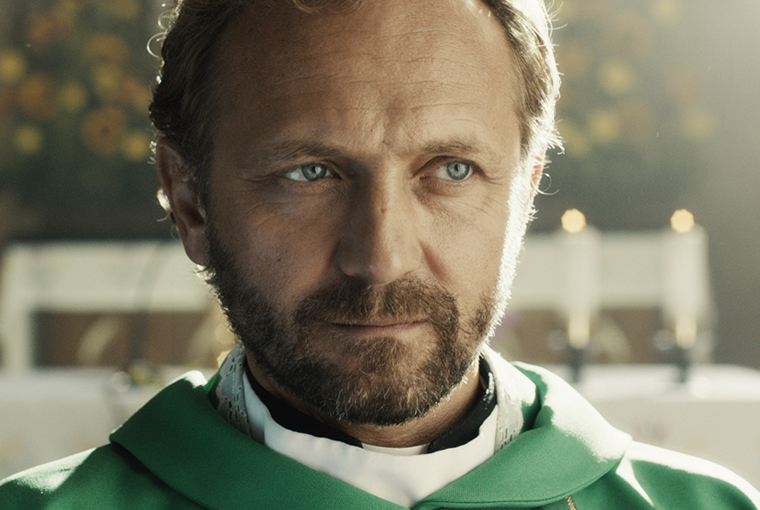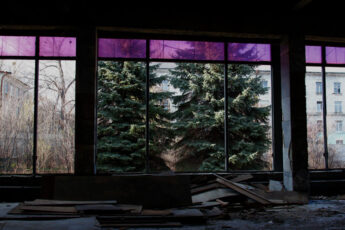No Stance
Małgorzata Szumowska’s In the Name of… (W imię…, 2013)
Vol. 37 (January 2014) by Moritz Pfeifer
In Szumowska’s new movie In the Name of… a gay priest falls in love with a young man who is under his custody. Adam (Andrzej Chyra), the priest, takes over a reform school when he gets transferred to a provincial town. There he meets Lukasz (Mateusz Kosciukiewicz) who seems to have pyromaniac problems but looks like Jesus and behaves accordingly. Lukasz’ timid beauty disturbs the priest. He hides his homosexuality successfully but can’t deal with his emotions when left alone. He starts drinking and rumors about his sexual preferences threaten the harmony in the village.
Like in Szumowska’s last film, the two main characters in her new picture defy the roles one would expect them to have in society. The priest is harder to tame than his pupil (even if the film industry seems to be convinced that all priests are gay1), especially from the point of view of the church authorities who suggest that Adam be transferred again because of the community’s mistrust.
Szumowska likes to play with clichés and complicate our prejudices. Stories about the suppressed sexual desire of gay and non-gay priests fill screens and papers. But to completely reverse the scheme and make a movie in which these desires are liveable or even fulfilled would probably be cheesy or just unreal. And so she has it both ways. Each time that the priest is about to explode and turn into a true destructive or self-destructive savage, Szumowska introduces another scene which highlights his exemplary pedagogical interaction with the delinquents. Impressionistic sequences show how they play soccer, swim and laugh. In short, the film’s answer to the question whether Adam’s transfer is his own fault or a characteristic case of retrograde conspiracy is both.
Szumowska likes to highlight that she prefers “not to judge” in her movies.2 What she probably means by that is that most of the values her movies deal with really don’t have anything to do with values at all. The “good life” of a priest should be judged independently from his homosexuality. Moral conduct cannot be reduced to internal or external states of affairs, at least not to the practice of a profession or on emotional condition like lust.
A considerable amount of critics seem to have a hard time with that.3 Some claim that it is a weakness that Szumowska doesn’t “take a stance”4 in her movies. Films are only artistically valid “when it is possible to read more into them than what is superficially happening.”5 Of course, we could read a lot more into a movie about a gay priest if the film would depict the priest’s sexual desire either as a road to emancipation or a degenerate explosive. In the first case, one could have a progressive discussion about same-sex marriage, clerical marriage, church reform, and so on. In the second case, one could talk endlessly about how thwarted desires remain desires, and similar Jekyll-and-Hyde type psychologies adding that in all-men environments like catholic seminars or reform schools, these desires may be especially hard to keep in check. Most art-house movies rely on the recipe of depicting tragic situation from which the viewer can read off the respective discussion. In Europe, most people are even ready to spend their money to have an opportunity to engage in such a debate, and intellectually up or downgrade its content.
One should appreciate that Szumowska “doesn’t take a stance”. Although in reality, there is of course a humble stance in her work. This stance shows that Szumowska takes the tragic moments of the largely undamaged life she depicts, as what they are, namely commonplace conflicts in a life which is difficult anyway.




Leave a Comment